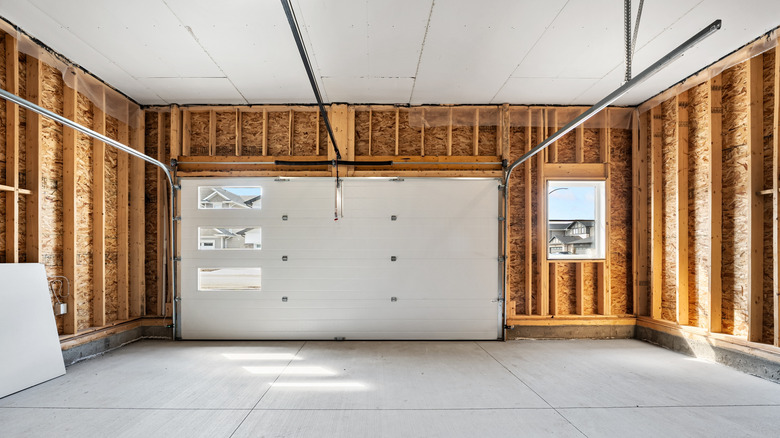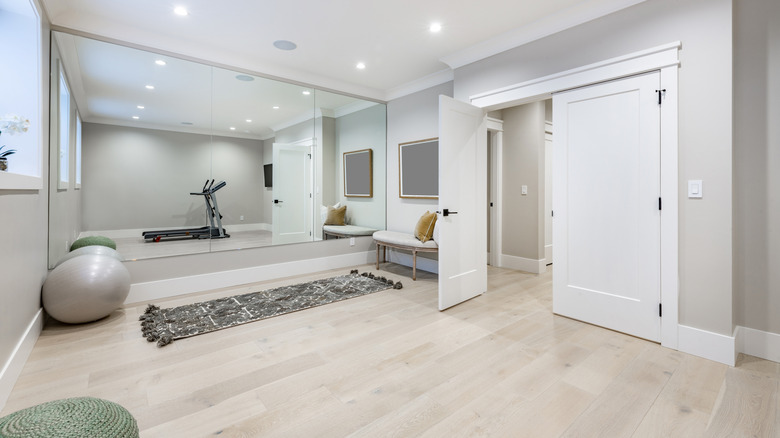The Garage DIY Homeowners May Regret Trying
When your home is bursting at the seams, it's easy to see your garage as wasted space that's just begging to be transformed into a guest room, private office, or workout space. Before long, armed with a Pinterest board full of possibilities, you've convinced yourself it's a great idea. After all, when it's not another spot in need of strategies for decluttering, a garage can look like a blank slate full of untapped potential. The appeal is understandably tempting, since repurposing a garage doesn't require moving a million boxes. Instead, you'll just need a little imagination and plenty of elbow grease. But before you permanently park the car in your driveway and start figuring out how you'll insulate that overhead door, keep in mind that homeowners often regret DIY garage conversions because they typically don't recoup their investment on the resale market, and it may even make your house less appealing to buyers.
While a garage conversion might be right for your space, it can completely alter the footprint of your home. Although that change may suit your lifestyle perfectly, buyers can see the lack of a garage as a compromise rather than an upgrade. You may be in love with the idea of a convenient home gym, but buyers are more likely to picture themselves running inside with an armful of groceries on a rainy day, rather than hitting a PB on the treadmill you'll take with you when you move out. According to Zillow, nearly half of buyers also have storage on their mind, and homes with converted garages immediately feel less practical since it just isn't as easy to toss bikes, holiday decorations, or tools into an attic or basement.
The hidden downsides of converting your garage
Real estate agents frequently note that garage conversions come with plenty of downsides, often making a home feel smaller and less functional. This is the case in both rural locations, where outdoor living is the norm, and urban areas, where parking space is at a premium. They can quickly lower your home's perceived value even when the conversion has been perfectly finished.
Speaking of the construction process, another reason garage conversions are something that homeowners may regret is that they often spiral into projects that are far more complicated and costly than expected. In fact, the average garage conversion can cost around $16,000 or more. While it may seem like a simple matter of swapping out the door and adding some new flooring, in reality, garage conversions often require complex wiring, HVAC, and other work that turns a weekend project into a major renovation. The final result may still fall short of a truly code-compliant living space, since permitting and building codes present another hurdle. While DIY won't necessarily matter in the short term, unpermitted work can implode a home sale, since both buyer's agents and appraisers will notice every issue. Lenders may also refuse to finance homes with unpermitted garage conversions, which can limit your pool of buyers significantly.
Before embarking on a garage conversion yourself, carefully weigh up what features all homebuyers look for in a new home. Even if you have no plans to move, long-term resale value should guide your decision. If every other house on your street has a spacious garage, it may be wise to shut the door on the idea altogether.

